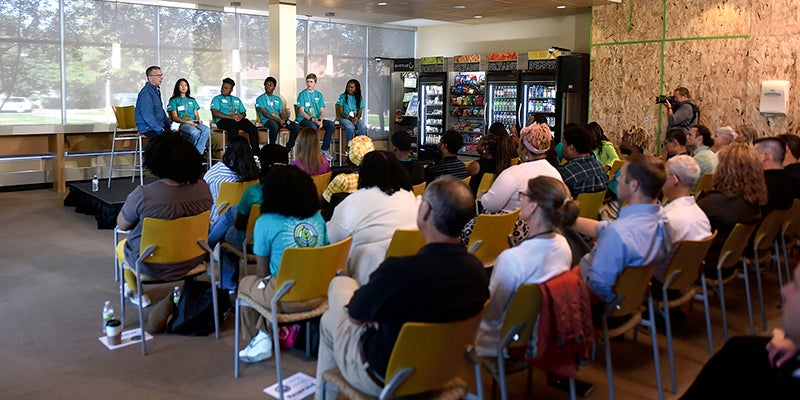Austin OKs extended liquor store hours, votes down added 3.2 sales
Published 10:15 am Tuesday, October 18, 2016
Austin liquor stores will soon be able to stay open until 10 p.m. Monday to Thursday, but other businesses aren’t going to be allowed to add 3.2 beer in Austin anytime soon.
The Austin City Council voted unanimously to change an ordinance to allow liquor stores to stay open until 10 p.m. on Monday through Thursday instead of the current 8 p.m. — which would match state statute.
However, Mayor Tom Stiehm served as tie breaker in a 4-3 vote against allowing convenience stores and non-liquor establishments to sell 3.2 beer.
The conversations first came up at an Oct. 3 work session because Austin’s liquor ordinance are more stringent than state statute. Most Minnesota cities allow liquor stores to be open until 10 p.m. during the week, while Austin currently makes the stores close at 8 p.m. Monday to Thursday while they can stay open until 10 p.m. on Friday and Saturday.
The council approved that changing the Monday through Thursday hours without any discussion.
However, the council was split on 3.2 beer. Austin limits 3.2 sales to liquor stores, while the state allows it at non-liquor establishments like convenience and grocery stores.
The discussion against allowing 3.2 beer focused on two key topics: the ease and ability for young people to obtain alcohol and economic effects on small liquor stores.
Stiehm joined Council members Steve King, David Hagen and Jeff Austin in voting against the change, while Jeremy Carolan, Michael Jordal and Janet Anderson voted in favor of the change. Judy Enright abstained.
Steve King, who works as the Mower County Correctional Service director, was one of the most vocal opponents. He was absent from the Oct. 3 work session where a split council voted 3-2 to move the 3.2 discussion to the full meeting because he was attending training for a Minnesota Department of Human Services, Alcohol and Drug Abuse Division grant for Austin to curb youth alcohol and drug use.
As Austin is kicking off such a grant, King argued it’d be counterproductive to make it easier to obtain 3.2 beer at non-liquor establishments.
“I just firmly believe that walking into a, say, Kwik Trip and seeing next to the Gatorade, Busch Light is not healthy,” he said. “I just can’t see my way clear to vote that way.”
In corrections, King sees many youth for minor consumption, and he said they shouldn’t make it easier for them to get alcohol.
“I just want my community to look different,” King said. “I get it that it’s allowed and I get — you know, Hy-Vee — that’s it’s conveniences, but at what cost? I’m just not prepared to vote in favor of making alcohol more accessible to young kids.”
Another key focus was economics.
On Monday and at past meetings, convenience store owners and Hy-Vee officials voiced support for additional 3.2 sales, arguing it’s an added convenience for the public.
Hy-Vee manager Dan Goshorn urged the council to pass the ordinance to give shoppers a choice.
“It’s convenience,” Goshorn said. “It’s convenience for our shoppers.”
However, several small liquor store owners spoke out against the change, arguing it would cut into their limited market.
Mark Lang, who owns Bobby Jo’s with his family, urged the council to vote no, adding that about 19 percent of his gross receipts for sales are from 3.2 off-sale beers, and he noted that doesn’t count if those people buy other things like a pizza or other items.
“If we pass this ordinance, it could greatly hamper my small business,” Lang said.
Lang noted it’s not easy to run a bar, as there used to be five bars on Austin’s East Side and now there are two. Not to mention, profit margins are shrinking as insurance and other cost factors increase.
By allowing convenience stores and grocery stores to sell 3.2 beer, Lang said it would hamper what small bars and liquor stores can do.
“I have very limited options to what I can offer the public,” he said. “I offer alcohol and food — that’s it.”
Hagen agreed. He checked with many store owners about the change, and he said this change would affect them by taking a portion of their business at a time when many of the small liquor stores are already having a tough time.
“Let grocery stores be grocery stores and let liquor stores be liquor stores,” Hagen said.
But Jordal noted most other states allow 3.2 beer and full-strength beer to be sold in grocery stores.
“Grocery stores are where you get beer in most parts of the country,” Jordal said.
Jordal was the most vocal supporter of allowing 3.2 beer in the non-liquor store establishments, arguing that fair competition in the free market would be a good thing.
The ordinance allowing liquor stores to stay open until 10 p.m. Monday to Thursday will take effect Jan. 1, 2017. Ordinance changes need to pass unanimously to be approved on first reading.






